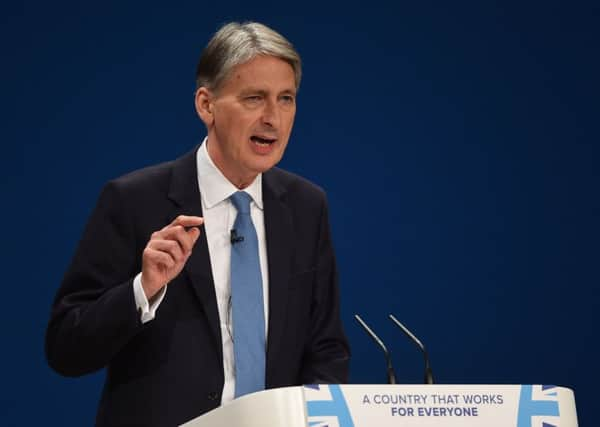YP Comment: Northern Powerhouse is here to stay '“ what next for Yorkshire mayor?


A statement of intent designed by Philip Hammond to reassure his predecessor George Osborne, he also stressed that regional devolution is here to stay after passing “a tipping point” in the transfer of economic power to the regions.
Carefully chosen words indicative of Mr Hammond’s pragmatism as he set out a more interventionist economic strategy after the Brexit vote scuppered the aspiration of eradicating the budget deficit by the end of this decade, the response of Yorkshire’s political leaders is eagerly awaited.
Advertisement
Hide AdAdvertisement
Hide AdAs regional rivals like Greater Manchester and the West Midlands press ahead with the election of metro-mayors, arrangements for this region remain in a state of flux – doubts still surround the deal struck for Sheffield and South Yorkshire while there is still a belief that local authorities and other agencies do need to collaborate on a countywide basis.
As always, the context is critical. For weeks, council chiefs have awaited guidance on the precise intentions of Mr Hammond, and Theresa May, following the dissolution of David Cameron’s government. And, while Mr Hammond did not say explicitly as his predecessor that metro-mayors are a pre-condition of any devolution deal, he did name-check department store John Lewis’s outdoor managing director Andy Street who will be the Tory candidate in the West Midlands and who, for the media’s benefit, was sitting in the prime position immediately to the right of the new Prime Minister. If this is deemed the way forward for the North West and the West Midlands, Yorkshire can only put off the day of reckoning for so long, especially as this county prides itself on having the strongest regional identity of all.
That said, Mr Hammond’s acceptance that Britain’s future economic prospects do depend, in part, on increasing productivity in the North is welcome – the challenge is making the most of this untapped potential. Infrastructure is important – regrettably Transport Secretary Chris Grayling’s speech made negligible reference to the North. So, too, are skills and it can only be hoped that the Chancellor notes the concerns of Lord (Bob) Kerslake who was chief executive of Sheffield Council before becoming head of the Civil Service. His message could not have been blunter: “We have to put our hand up and say that the North under-performs, in my view it is close to catastrophic, on education and skills.”
If this issue is ignored any longer, it will make it even harder for Ministers – and future governments – to pay off the country’s debts. The question, given how skills, investment and infrastructure transcend artificial local authority boundaries, is how best to achieve this in Yorkshire. Given councils – Tory and Labour alike – have far more in common than they would care to admit, perhaps they should decide their policy priorities – and then work out how best to deliver a new era of prosperity. They don’t owe it to themselves. They owe it to this – and all future generations.
Hospice heroes
Advertisement
Hide AdAdvertisement
Hide AdALL too often, Care Quality Commission inspectors and reports only make headlines when failings and negligence have been discovered, hence the importance of subjecting hospitals, hospices, care homes and the like to random checks on a regular basis.
Equally it’s also important to remember that most care providers do uphold the highest standards, often in challenging financial circumstances, and this is highlighted by the CQC’s ‘outstanding’ appraisal of St Gemma’s Hospice in Leeds and the support it gives to the terminally-ill and their relatives. The following testimonial from a patient was emblematic of the positive feedback given to inspectors: “I couldn’t have wished to have been brought to anywhere that is as wonderful as this. They have so much time for me, you would think I was the only one here – they make you feel like that.”
Not only is it important to highlight outstanding care practices so other providers can aspire to a similar standard, it should also be acknowledged that Yorkshire’s hospices are totally dependent on charity fundraising. The statistics could not be starker – adult hospices receive less than one third of their funding from the Government, each hospice needs to raise £9,000 a day and more than 125,000 volunteers offer assistance each year. Yet, with hospices in some parts of the UK not having sufficient beds to meet the needs of their local community, the time has surely come for them to receive more public funding to compliment, still further, the priceless work of fundraisers so the terminally ill can die with dignity. It’s the very least that Ministers can do.